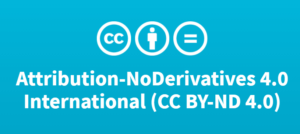The biggest single issue stifling tobacco harm reduction (THR) is – in my opinion – leadership. The solution? Again, I think it’s leadership.
This lack of collective leadership is the reason THR – a theoretically sound public health concept – currently isn’t making the dents in global smoking rates it perhaps should be.
This is the first Global Forum on Nicotine I’ve personally attended, and I’ve come away incredibly impressed with the individual leadership I’ve witnessed in so many THR-related fields.
However, one of the challenges I believe we still face as a collective is translating individual leadership into more effective collaboration. To engender genuine change, harm reduction academics/scientists and industry must somehow break free from their various echo chambers to better engage with public health and regulatory bodies.
That’s a key challenge, but not an insurmountable one, so I also leave GFN 2023 with renewed optimism.
Optimism that, for many reasons, the future looks bright for the billion people across the globe who all have unique potential paths away from cigarette smoking.
For instance, the exciting emergence of fresh and potentially encouraging regulatory frameworks with consumer needs and harm reduction embedded at their cores – like the Philippines.
These frameworks will hopefully be guided by a genuine desire to meet adult smokers’ needs instead of falling into the trap of prohibition, which often only encourages bad actors and results in a thriving illicit trade.
This seems to be what’s transpiring in Australia; and if so, their reactionary approach to meeting Smokefree targets is a potentially cautionary tale that needs to be told – and even more importantly learned from – if similar mistakes are not to be made elsewhere.
The Australian experience reinforces our need to listen carefully to what adult smoker consumers want, rather than simply telling them what they need to do.
Likewise, we shouldn’t start by thinking about how to regulate products, but rather how to help adult smokers seeking to switch to potentially harm reduced alternatives – all of whom are on potentially unique journeys away from cigarettes.
My hope is that, over the next decade, more countries will step up and create best-practice frameworks for next generation product (NGP) standards that could simply and effectively be replicated elsewhere.
Robust frameworks containing undisputed standards – based on sound science – have the potential to create a truly level playing field for responsible manufacturers that can help bolster consumer confidence, giving adult smokers access to high quality products and information they can trust, so they’re able to make informed choices.
Risk-proportionate regulation is also crucial, with advertising rules and tax duties reflecting the growing evidence of the relative lower harms of NGP compared to cigarettes. It simply doesn’t make sense for these categories to be regulated in the same way – not only because it sends a confusing and misleading message to adult smokers trying to quit, but also because it hinders harm reduction in general.
Any regulatory frameworks helping to facilitate THR also need to strike a balance: they should allow enough advertising and marketing to make sure adult smokers know about – and understand – NGP. However, they must also ensure said marketing is only aimed at adult smokers and not youth.
Indeed, it’s our collective responsibility to be brave in calling out those who undermine any aspect of THR – be it poor quality devices, adulterated e-liquids, or marketing or selling NGP to youth.
There is simply no room for bad actors in a highly scrutinised industry like ours.
I’ve already alluded to it, but another reason for optimism is the science, with GFN 2023 helping to showcase the ever-growing body of evidence substantiating and endorsing the harm reduction potential of NGP.
I’m confident that, fast-forwarding ten years, we’ll also be in possession of data clearly confirming their longer-term public health benefit.

The scientific evidence gathered in the lab, the clinic and via population modelling by us and others is already translating through to the real world.
For instance, the UK’s smoking rate is falling thanks to increasing numbers of adult smokers switching to vapes, facilitated in part through the government and public health endorsement of the category.
Following this lead, our latest scientific initiative involves conducting actual use studies in two countries – the UK (vaping) and Czech Republic (heated tobacco) focusing on providing NGP to adult smokers with no intention to quit.
We’re tracking our participants to understand how they use our products over time to potentially help cut down – or perhaps even entirely replace – cigarette smoking.
These actual use studies will not only potentially help us demonstrate in-market THR, but also provide crucial insights into drivers and barriers to switching, helping our innovation teams develop even better NGP to meet smokers’ needs.
Imperial also remains committed to publishing all our NGP science in the academic literature to encourage scrutiny and debate. We’re also seeking to play our part in helping to correct one of the biggest ongoing threats to THR – nicotine misperceptions and misinformation.
In conclusion, it’s vital regulators, NGOs and industry demonstrate the leadership I’ve previously mentioned and strive to work together for the common good of a billion adult smokers.
In combination with the wider proliferation of risk-proportionate legislative frameworks helping to facilitate THR, the exciting and rewarding outcome in a decade’s time will likely be a huge dent in global smoking rates and vastly improved health outcomes for millions of adult smokers.
That’s surely an ambition worth being optimistic about.
You are free to share this content with credit to Imperial Brands under a Creative Commons Attribution-NoDerivatives 4.0 International (CC BY-ND 4.0) license.
